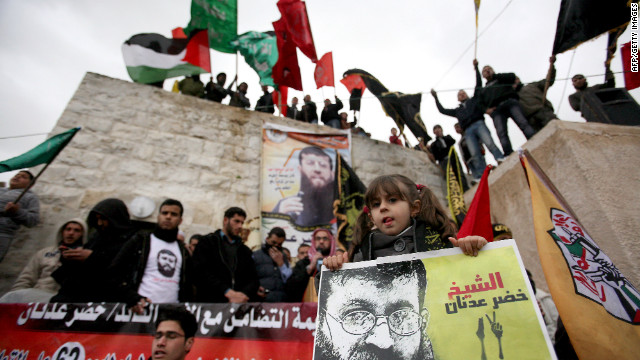By Zach Waksman
Impunity Watch Reporter, Africa
DAKAR, Senegal – Protests against the eligibility of President Abdoulaye Wade have been a near constant presence in Senegal since Wade was deemed eligible to stand for re-election in late January. On Sunday, activists seized control of a three-block area in downtown Dakar, the capital, and threw rocks at police summoned to control the activity. It was the fifth consecutive day of violence related to the upcoming election, in which six people have died. The election is scheduled for February 26.

Senegal’s constitution has a two-term limit for its president. Wade, if elected, would be serving his third consecutive term, violating that clause. Despite this, the Constitutional Council of the West African country ruled that he could run for a third term because he served his first term, which began after his election in 2000, before the rule was enacted. The Constitutional Council also controversially rejected the candidacy of Youssou N’Dour, who had collected 13,000 signatures of support, more than the required 10,000, stoking further public outcry.
During a February 7 interview with Radio Netherlands Worldwide, Thijs Berman—head of the European Union’s Observer Mission in Senegal—explained that N’Dour’s candidacy was rejected because he had more than 4,000 false signatures that were removed from his total. He still questioned the decision to remove the popular singer from the ballot due to uncertain procedures.
“We have requested transparency from the Constitutional Council in its decision to approve or reject candidatures,” Berman said. “We have also requested that each candidate be given access to his/her application information, to the reason why it was approved or rejected. I think such transparency is lacking and one can therefore understand Youssou N’Dour’s anger.”
The mission has also requested that the country’s Electoral Affairs Ministry provide information regarding the distribution of voter cards.
Wade, who is officially stated to be 85 but could be as old as 90, is still in the race. His continued presence is drawing concern from the international community because of his age and Senegal’s role in the region. It is the only West African country whose government has never been toppled by a military coup. Locally, the belief is that he is attempting to set up a “‘monarchical devolution’ of the presidency” to his son Karim. Karim has an allocation of one quarter of the national budget for his use as a “Super Minister” of multiple jurisdictions.
This most recent round of protests has taken on a more violent tone. On Wednesday, dissidents attempted to hold an illegal march in Dakar, which led police to fire tear gas and rubber bullets in an attempt to disperse them. Several buildings were set on fire, and a policeman is said to have been killed during the ensuing unrest. Friday drew more anger after an attempt to break up a protest outside a mosque disrupted prayers. Police used grenade launchers to propel tear gas canisters down the street, only to have one of them hit a wall of the mosque. Interior Minister Ousmane Ngom apologized for the incident, which he characterized as a “police blunder,” on Sunday.
“I would like to present, in my personal name and on behalf of the highest authorities of national police, our most sincere apologies to the caliph” of the Tidiane brotherhood (Senegal’s largest) and his followers, he told the Senegalese Press Agency (APS). He also recommended against holding new rallies near mosques.
That urging did not stop youths from gathering outside the same mosque on Sunday and throwing stones and other projectiles at police, while screaming “Allah Akbar” and “There is no God but Allah.” Neither phrase is heard much in the country, which is almost 90% Muslim. Senegal has taken on a largely secular identity.
“I’m worried — yes. What I’m seeing here could really degenerate into another kind of situation, a religious one,” said Moustapha Faye, a young member of the Mouride Muslim brotherhood, the second largest in Senegal, as he observed the situation from a safe position. “We must absolutely avoid violence.”
One of the main opposition groups is the M23 coalition with whom N’Dour has campaigned after his candidacy was rejected. The group’s main goal is to force Wade out of the race. Once its members accomplish that mission, they would then begin their own separate campaigns. The other main organization is Y’en a Marre (We are fed up!), a strong youth-based group that has done an outstanding job of mobilizing people. More than 20 such groups exist and their leaders have been subjected to threats, attempts at corruption, and even arrests.
“It is good to see such social involvement and political activism from young people. I cannot comment on their participation, or on their agenda,” said an encouraged Berman. “But I think it is good for Senegal that the youth is so involved.”
Whether Berman’s belief is accurate may depend on the results of the upcoming election.
For more information, please see:
AllAfrica — Senegal: New Protest Planned as Election Looms — 20 February 2012
BBC — Senegal Apology amid Protests against Abdoulaye Wade — 20 February 2012
New York Times — Senegal Protests Grow before Presidential Vote — 19 February 2012
Daily Nation — Senegal: EU Urges Transparency in Voter Registration — 17 February 2012
Senegambia News — Senegalese 2012 Presidential Election, Where Are We Now? — 17 February 2012
AllAfrica — West Africa: Berman – “Lack of Transparency in Senegal” — 7 February 2012



